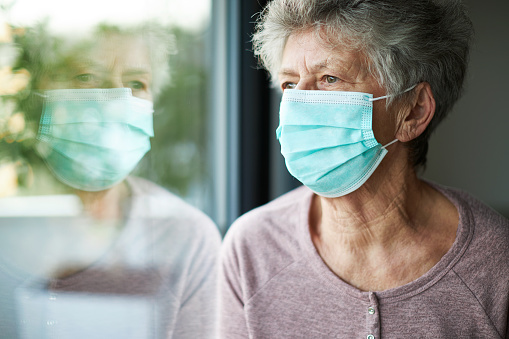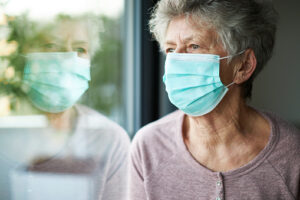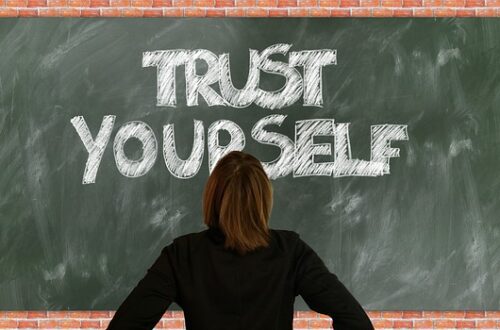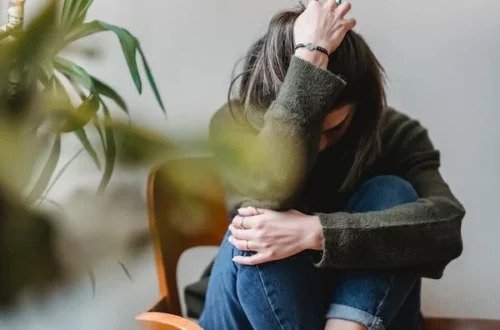
What You Can Do About Loneliness
“Solitude is not the same as loneliness. Solitude is a solitary boat floating in a sea of possible companions.”—Robert Fulghum
Carrie, a full-time caregiver to her ailing 70-year-old husband, felt lonely. She said:
“I’ve been in a dark hole for quite a while. Sometimes, I believe everyone around me would be better off if I were dead. My friends can no longer visit; my few remaining relatives don’t seem to care. I often feel dead inside.
“I can’t help it. I know I sound selfish, but I’ve spent more than twenty years with caregiving duties for one relative after another, and now my husband. When will it end?
“I can’t see the light at the end of this very long, dark tunnel. I’m miserable.”
Carrie could be suffering from many different negative emotions: burnout, resentment, and anger. She has no close connections and feels helpless and lonely.
As of this writing, the world is experiencing a worldwide COVID-19 (coronavirus) pandemic, which only exacerbates and upends Carrie’s already difficult situation.
Why are persistent feelings of sadness and isolation so dangerous?

Recent studies link loneliness to severe health conditions.
The State of Loneliness Today
“Sad because one has no friends or company.”—Oxford English Dictionary
Studies show older adults are at increased risk for loneliness and social isolation because they are more likely to face factors such as loss of family or friends.
As mentioned above, Carrie has “lost” her husband for all practical purposes due to his chronic illness and her having to care for him 24/7.
At the same time, the world, including here in the U.S., is in the middle of a pandemic: COVID-19 (coronavirus). Practicing “social distancing” (or physical distancing) is a significant way to prevent the spreading of the virus.
These guidelines restrict interaction with others. (More on this later in this article.)
According to the latest statistics on loneliness (2016-2020), data show loneliness in the general U.S. population; 61% of Americans were lonely in 2019. In 2018, the number was 54%.
These data are from before COVID-19.
Long before coronavirus spread worldwide, former Surgeon General Vivek Murthy warned of the dangers of loneliness. He worked hard to bring attention to the “loneliness epidemic.”
Murthy believes that loneliness takes a toll on physical and mental health and links social connection to a 50% drop in the risk of early death.
In Dr. Murthy’s new book, he discusses the toll of isolation on America’s health:
Together: The Healing Power of Human Connection in a Sometimes Lonely World.
(Find his book on Amazon.com)
Serious Health Risks Linked to Loneliness
Though it is hard to measure, recent studies found these severe health risks related to loneliness:
- Premature death (similar to dangers from smoking and obesity)
- 50% increased risk of dementia
- 29% increased risk of heart disease
- 32% increased risk of stroke
- Higher rates of clinical depression, anxiety, and suicide
(Source: Centers for Disease Control and Prevention)
Effects of loneliness on general health include:
- Trouble concentrating and remembering details and making decisions
- Low energy or fatigue
- Restlessness
- Irritability
- Sleep problems; sleeping too little (insomnia) or sleeping too much
- Appetite change; overeating or appetite loss
- Digestive problems
- Loss of interest in things you usually enjoy
- Feelings of guilt, worthlessness, and helplessness
- Recurrent pain, such as headaches or cramps
- Persistent sadness, anxiety, or feelings of emptiness
- Pessimism and hopelessness
(Source: WebMD.com)
(Note: This is not a diagnosis. If you experience any of the above to an excessive degree, please see a mental health professional.)
Loneliness and Social Isolation
Many nations, including the U.S., are attempting to control and manage the spread of COVID-19 (coronavirus) thought to spread mainly from person to person.
There is currently no vaccine to prevent coronavirus disease.
The director of the U.S. Center for Disease Control (CDC), Dr. Robert R. Redfield, outlined several steps we can take to protect each other:
- Stay home as much as possible.
- Practice social distancing (staying at least 6 feet, or two arms’ length from other people who are not from your household indoor and outdoor spaces.
- Wear cloth masks (face covering) in public settings, especially when other social distancing measures are challenging to maintain. Note: respiratory droplets spread when someone coughs, sneezes, raises their voice, shouts, chants, or sings, and can land in the mouths or noses of people nearby, or perhaps inhaled into the lungs. Some people with COVID-19 lack symptoms and can transmit the virus to others before showing signs.
- Avoid touching your face with unwashed hands.
- Wash your hands frequently with soap and water for at least 20 seconds.
There are also guidelines regarding isolation and quarantine. (Guidelines can change, so be sure to speak with your doctor.)
COVID-19 (coronavirus) is highly contagious, which cannot be stressed enough.
Thus, interacting face-to-face with others individually or in crowds is a significant health risk.
But to quote Dr. Robert R. Redfield of the CDC:
“We are not defenseless against COVID-19. Cloth face coverings are one of the most powerful weapons we have to slow and stop the spread of the virus—particularly when used universally in a community setting. All Americans have a responsibility to protect themselves, their families, and their communities.”
Meanwhile, gone are trips to the movies, concerts, bar lounges, and attending churches and other worship places for services and funerals.
Even eating in restaurants is incredibly limited.
Numerous businesses have closed (some temporarily but many permanently), and countless other employer groups have asked employees to work from home.
Most schools are closed and have moved to virtual learning.
Staying connected to friends and loved ones in the middle of this pandemic is difficult, if not impossible.
Many people, like Carrie, are desperately lonely during this time, experiencing profound disconnection.
So, what can Carrie and others that have no close connections, do about loneliness?
What You Can Do About Loneliness
As discussed above, prolonged loneliness can be dangerous to your health—especially your mental health.
Social distancing recommended during the pandemic can leave you feeling lonely.
If we perceive ourselves as socially or emotionally isolated, if we lack deep friendships, if we lack any meaningful relationships at all, we could suffer “chronic” loneliness.
Chronic loneliness goes far beyond fundamental unhappiness; you must work to do something about it.
A Few Ideas:
- Stick to a Schedule. Make your days feel as normal as possible by staying with your daily routine. Follow your to-do list if you have one.
- Stay Active. Don’t focus exclusively on managing your mental health; engage in at-home activities for physical fitness. (Practice workouts at home with YouTube videos or go outside for a walk, when possible.)
- Keep Up-to-Date. Learn what’s going on in your community and the country because COVID-19 mandates and guidelines change. You don’t want to stress out by watching world news day in and day out, as this is dangerous to your mental health, but do keep abreast of the latest health information. Make sure you seek sites that give factual, up-to-date guidelines.
- Pray and Meditate. People who connect to their internal spirituality are more resilient emotionally if they are spiritual people.
- Practice Self-Care. Add techniques like mindfulness and daily affirmations to help you feel more optimistic
- Practice Empathy. You will feel less lonely and more social connectedness if you practice empathy for yourself and others. Feeling compassion will also help you manage your anxiety and reduce your overwhelm.
- Participate in Online Communities. Join and participate in Facebook groups of interest to you to combat loneliness. I participated in an online caregiving support group when I cared for my husband, 24/7, which proved to be a lifesaver for me.
Join the Voice-Chat app, QuarantineChat@dialup.com for serendipitous connections with people around the world affected by the virus. (Available on iOS and Android.)
- Write. Daily journal writing is an excellent way to combat loneliness. Writing in a journal permits you to look closely and think deeply about everyday events in your life. You can chronicle the ups and downs, as well as the pains and joys of your life. You can express yourself without inhibition and get to know yourself better through journal writing.
Older adults (65+), particularly, self-isolate during the pandemic making them more susceptible to loneliness.
Just making regular phone calls to relatives and asking for help from family members will help stave off feeling alone.
Additional Resources:
Volunteer Match
Find volunteer opportunities in your area.
American Volkssport Association (AVA)
A national organization that promotes fitness with many local clubs that sponsor walks and other fitness events.
Silver Sneakers
A national network of gyms with free membership for those with participating health plans, and a community of other adults seeking to remain fit and involved. Tools to help you stay in shape and have fun.
Meetup
A convenient way to find events in your neighborhood. Discover and join from the comfort of your home. Events include outdoor & adventure, learning, career & business, health & wellness, and social.
Senior Theatre Resource Center
Plays for community theatre, online theatre, plays by theme, and readers’ theatre. Information for older adults interested in performing.
Encore
An online resource for those interested in utilizing their experience and knowledge to work—paid or unpaid—with social impact, to benefit future generations.
“We are older activists, innovators, and leaders, standing with younger allies to bridge divides, connect across generations, and create a better future together.”
***** *****
Summary
Feeling lonely and isolated is terrible for your health.
Higher rates of depression, a weakened immune system, heart disease, and early death are just a few of the tragedies associated with loneliness.
If you live alone, can’t leave your home, feel alone or disconnected from others, recently had a significant loss or change, a caregiver, and a lack of purpose, you must find an activity you enjoy.
Indeed, loneliness can affect your body and your mind.
But all is not lost. You can do something about loneliness.
“My books are always about somebody taken from aloneness and isolation—often elevated loneliness—to the community. It may be a denigrated community that is filthy and poor, but they are not alone; they are with people.”—Chuck Palahniuk
Use the ideas discussed in this article to soothe the emotional suffering that loneliness creates.
And find your community!
***** *****
Disclaimer: The content in this article is not intended as a substitute for medical advice. If the emotional pain of loneliness is too great, talk to your doctor or healthcare provider for therapy or treatment.




